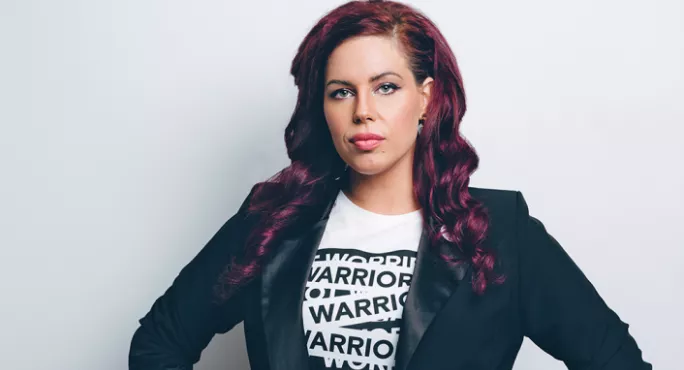- Home
- ‘Social media is a mental health scapegoat’
‘Social media is a mental health scapegoat’

Over the past few years, there has been a sharp increase in recognised instances of declining mental health in the general population. This has been most pronounced in young people. Whilst this is a widely acknowledged and empirically measurable phenomenon, it’s also undoubtedly in part a case of mental ill health which would once have flown under the radar - now more visible in an age of greater awareness.
Inevitably, scientists, charities, educators, parents and journalists have set about puzzling over the first aspect - what is it about modern living that makes mental illness more likely? And, it would appear, they have unanimously settled upon their answer: technology.
Children’s commissioner Anne Longfield published recommendations calling for mandatory digital literacy lessons in primary schools earlier this year. Facebook hosted a thinktank-style meeting at its London HQ, inviting representatives from mental health-focused charities to share thoughts on how social media platforms could protect young and/or vulnerable users. Last week even Simon Cowell got in on the act, declaring that he had given up his mobile phone for the past 10 months in a bid to safeguard his own mental wellbeing.
It’s easy to see how the public outcry has happened - young people are in measurable distress and technology represents the most obvious cultural shift between their generation and the ones that preceded it. It’s also, of course, necessary for us to adapt education so that it is better able to give children the tools they need to successfully navigate modern life, making Longfield’s recommendations both sensible and timely.
The conversation presents a potential danger, however, when technology, and in particular social media, starts being used as a means of distracting and scapegoating. Last week Professor Hugh Brady, vice-chancellor of Bristol University, was reported to have claimed that “constant” social media use was to blame for deteriorating mental health in the student population.
Bristol University has endured 10 student deaths which were suspected to be suicides over the past two years. In response, it pledged to invest £1 million into improving student mental health. I am, of course, aware that the media likes to take soundbites out of context but, if true, for one of the leaders of the university to have subsequently arrived at the conclusion that social media should be their focus is not only spectacularly naïve but also extremely worrying.
Many challenges to mental health
On Wednesday, charity Student Minds will launch its Transitions project, which aims to help to prepare sixth-form and college students for some of the more difficult aspects of university life. Whilst researching my book A Beginner’s Guide to Being Mental, I interviewed the charity’s chief executive, Rosie Tressler, and asked her to name the biggest challenges to student mental health.
Having conducted numerous studies to create the Transitions toolkit, Rosie told me that the hurdles had been identified as: housing and relationships, budgeting, culture shock, academic pressure, balancing social life with academic work and part-time employment, and anxiety about future prospects and employment. In this context, pointing the finger at smartphones is, to say the least, reductionist.
Writing my book also solidified some of the retrospective understandings I have gained about my own history of mental illness. I realised that, whilst I had the first panic attack I can remember at the age of 10, it was when I went to university that I began developing the most toxic coping mechanisms for my anxiety and thus my mental health took a significant nosedive. This was in no small part because of all the reasons outlined by Rosie above and it happened at a time before the smartphone had been invented.
Now, of course, the pressure on university students has been magnified because of the amount of debt most will be forced to get into (my student loan was less than £10,000, the average amount in 2018 is £57,000), as well as a much more competitive job and housing market. So it’s little wonder that, again according to Student Minds, as many as one-third of people currently studying at university are in psychological distress.
No reasonable person would contest the idea that technology and social media have had a rapid and dramatic impact on how we think and behave, and that urgent adjustments need to be made to allow for this. To conclude, however, that this is responsible for rising levels of mental illness is a huge leap.
I suspect that it is, in fact, adults who struggle most with the impact of technology, because they were not born into a world where it was already part of the social infrastructure. My own research shows that young people see social media as much less of a negative influence on their wellbeing than their forebears. Of course, there is value in both perspectives. But perhaps it’s time we began giving a little more credence to the views of the young people affected and looking beyond social media as the reason for the crisis in their mental health.
Natasha Devon MBE is the former government mental health champion. She is a writer and campaigner and visits an average of three schools per week all over the UK. She tweets @_natashadevon. Find out more about her work here.
Register with Tes and you can read two free articles every month plus you'll have access to our range of award-winning newsletters.
Keep reading with our special offer!
You’ve reached your limit of free articles this month.
- Unlimited access to all Tes magazine content
- Save your favourite articles and gift them to your colleagues
- Exclusive subscriber-only stories
- Over 200,000 archived articles
- Unlimited access to all Tes magazine content
- Save your favourite articles and gift them to your colleagues
- Exclusive subscriber-only stories
- Over 200,000 archived articles


